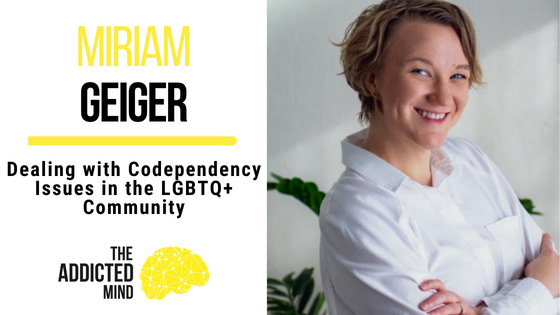The LGBTQ community has long been underserved by the mental health care system as well as recovery supports, despite being an increasingly visible and sizable part of the general population. In part, this is due to the ongoing discrimination and prejudice that members of the LGBTQ community face on a daily basis.
According to Marriage and Family therapist, Miriam Geiger, who is also part of the LGBTQ+ community, many LGBTQ people find themselves struggling with issues of codependency in their relationships due to the overlapping issues of trauma, marginalization, and lack of safe spaces to express themselves and their identity.
A False Sense of Self
Because LGBTQ+ often have to hide so much of themselves in our society, as a member of the LGBTQ+ community, you become skilled at hiding parts of yourself and dismissing your needs, often in attempts to stay safe, and be perceived as acceptable to others.
This can lead to codependency in relationships for LGBTQ+ people because you can often become overly accommodating to others, set aside our own wants and needs, and make excuses for unacceptable behaviors. While it’s normal and healthy to want closeness, connection, and support in our relationships, codependency distorts our need for relationships into controlling, passive aggressive, or people pleasing behaviors.
In reality, LGBTQ people are some of the most caring, sweet, and loving people because when you have experienced trauma and rejection, that also creates deep empathy for the suffering of others. And so, it can be very challenging to be able to separate all that out so that you can be congruent with yourself and your needs in relationships.
How to Recover From Codependency
If you are an LGBTQ person who is struggling with codependency – there is hope. Find something that resonates with you and gives you some sense of hope and direction. Just get started and follow what calls you.
Take some time to sit down with yourself and reflect on what you really want to do and what help you might need. Maybe it’s therapy, maybe you just need to join a group, or a trauma-informed yoga class. Because people who struggle with codependency often don’t know themselves well, an important part of healing is trying new things and finding things that work for you.
There are different ways of recovery and the solution doesn’t always have to be in the problem – recovering from codependency is rarely found in “fixing” a relationship. By doing other things to nurture yourself, build your self worth, and help you learn healthy boundaries, relationships often become easier.
If you want to learn more about Miriam and her work around codependency and relationships, check out https://theaddictedmind.com/198 and her website miriamgeiger.com.

